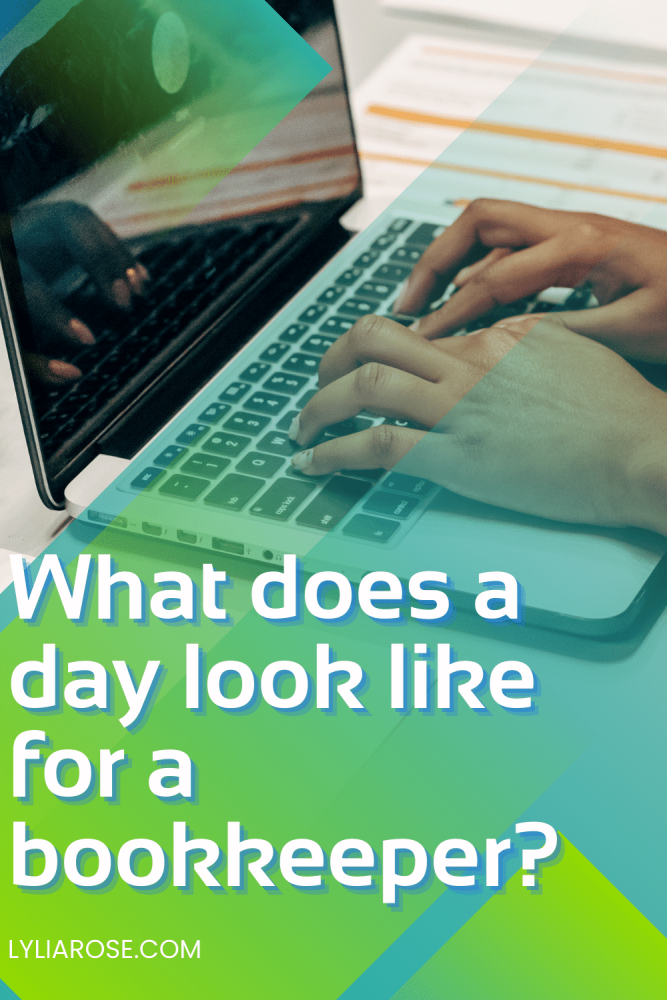What does a day look like for a bookkeeper?
Posted on
When you're looking into a career change or anything similar, it is incredibly useful to know what a person in that career does within a day. It can show you whether that field of work would really suit you and your lifestyle or not; so what does a day look like for a bookkeeper?

What are a bookkeeper's duties?
What does a bookkeeper do? Bookkeepers are responsible for keeping track of a business's financial records, their daily transactions, and making sure that all their financial information is complete and up-to-date to help keep them tax ready. They help managers and business owners to make informed financial decisions about their company. The Darlington branch of Auditox Accountants have put together a list of activities a bookkeeper may do each day.

What are the daily tasks of a bookkeeper?
On a day-to-day basis, a bookkeeper's job will involve:
-
Balancing accounts (sometimes referred to as "double entry bookkeeping")
-
Processing sales invoices
-
Managing receipts
-
Processing payments
-
Completing VAT returns
-
Checking bank accounts and statements
-
Repairing cash flow statements
-
Maintain financial records and paperwork
Bookkeepers will also help prepare profit and loss sheets each year for annual accounts, keep track of financial transactions and balance financial records daily. Accountants or bookkeepers who work in larger companies will be able to share this workload amongst themselves and their colleagues, but self-employed bookkeepers will have more on their plate.
Those bookkeepers who work with a bookkeeping company will be able to benefit from a reasonably healthy work/life balance, as many bookkeepers will simply work 9-5, five days a week. However, those who run their own bookkeeping company as independent bookkeepers may have a less balanced life, as they will have much more responsibility on their shoulders. To make their jobs simpler and easier to organise, many bookkeepers may choose to use accounting software programs.
There is also the option to work freelance as a bookkeeper or in a corporate finance career, which would make your daily responsibilities a little different and dependent on the clientele you take on.

What is the median annual salary of a bookkeeper?
In the UK, the median annual salary of a bookkeeper is around £28k. This, of course, is not an entry salary, which is slightly lower at approximately £21k.
Those bookkeepers who choose to work as an independent bookkeeper will of course have a different salary, depending on their hours, experience and clients.

What do you need to work for a bookkeeping company or as a self-employed bookkeeper?
To be a successful bookkeeper, you'll need a range of skills and some qualifications. Companies rely on bookkeepers to help make sure that their financial records stay current and to help manage their payroll, so it is important that bookkeepers are adept.
You will need to be thorough and have a great eye for detail. You should also be able to work well with others, be organised and be great at administration. Your communication and customer service skills will be put to the test, and you will have to use initiative and become entirely flexible and open to change. Of course, bookkeepers will need math skills as well as computer literacy.
In terms of qualifications, you can get into bookkeeping in a range of ways in the UK. There is no official qualification you need, but most job opportunities will demand around 4 or 5 GCSEs, including maths and English. You will likely get paid less with fewer qualifications or experience, however. If you are looking to go straight into work, it is worth researching accounting principles and software as well as doing anything you can to boost your IT skills. Both will look great on your CV, making you a more appealing candidate for any role.
-
College courses
You might choose to take a recognised accounts or bookkeeping course such as Level 2 Certificate in Bookkeeping or Accounting, or a Level 2 Certificate in Manual and Computerised Bookkeeping.
-
Apprenticeships
Alternatively, you could opt for an accounts and finance apprenticeship. These usually take around a year to finish.

Is it better to work for a company or as an independent bookkeeper?
One of the main differences between self-employed accountants or bookkeepers and those working within accounting departments is that independent bookkeepers must obtain certification with AAT and hold a valid AAT licence.
To get a valid AAT licence, you will need to:
-
Complete the AAT diagnostics test
-
Apply for a Basic Disclosure Certificate
-
Arrange Professional Indemnity Insurance
-
Arrange continuity of practice cover
-
Register with the Information Commissioner's office
You will then need to download the AAT Licensed Member Application form and apply. You must also pay certain fees, including the admission fee (£50), reinstatement fee (£50) and the annual membership fee (£160; all fees correct at time of writing).
Whilst this may seem like a lot of work, once arranged, holding an AAT licence will allow you to work when you want, where you want and for who you want. You can work for multiple companies at once and could focus your help on smaller companies or larger companies. It is also a great option for those who cannot, for whatever reason, currently be a full time bookkeeper, and will help to make you an attractive candidate for any jobs with larger companies later down the line.
However, the downside of being a self employed bookkeeper is the amount of responsibility. Managing financial records is a time consuming task, and daily bookkeeping for companies can become tiresome. Other bookkeepers will be able to share this burden with their coworkers, but independent bookkeepers have to do all of the work themselves. While software programs make this easier, it is still a lot of work! Check out my article what happens when you don’t do your bookkeeping to see the consequences of not completing this task.

Is there a chance for career progression?
Within businesses, there is definitely the chance for career progression for bookkeepers. You might be able to work your way up within the accounting department, receiving the necessary training and responsibilities to progress. Bookkeepers may be able to progress to become accounting technicians, accountants, or possibly even department managers! All of which, of course, will bring a rise in median annual salary. If accounting sounds appealing to you, then check out my list of 9 money-related careers that'll help you earn more money for more finance-related career choices.
Want to manage your finances better?
Here are loads of family finance tips and helpful debt articles.
Check out my massive money-saving tips section and find some great deals on my voucher codes and free money pages!
Want to make more money from home, online or need a side hustle?
Find loads of ways to make extra money at home on my blog, as well as my favourite side hustle in my matched betting blog!
To get started, you can make money online uk with these 60 ways I’ve tried and tested.
Follow these steps to make £1000 in one month at home.
Or, if you’re short on time, try these methods to make money in one hour.


